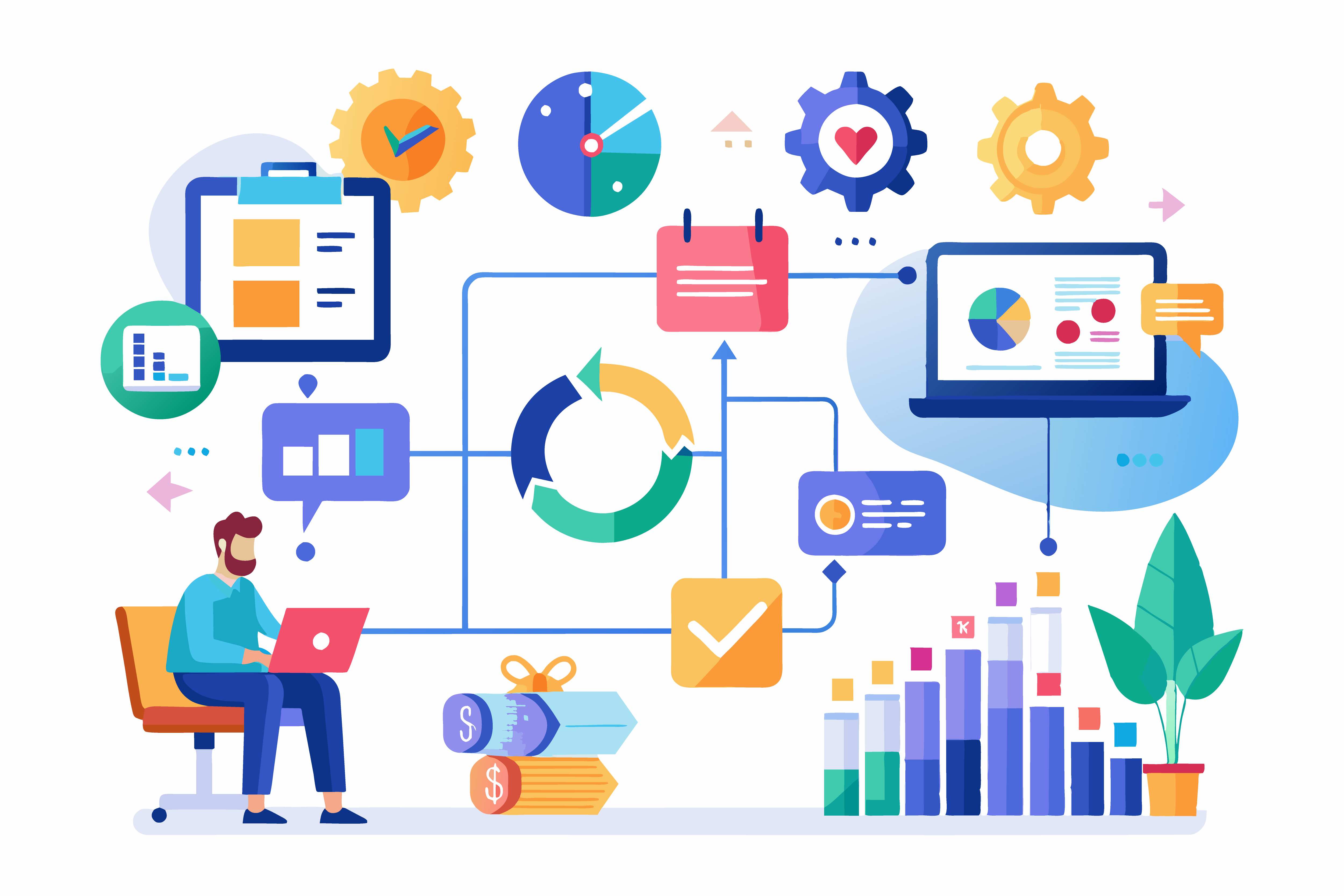In recent times, the incorporation of Artificial Intelligence (AI) in the healthcare sector has significantly transformed how medical judgments are rendered. AI, leveraging its capacity to analyze extensive datasets and discern patterns that might elude human perception, has emerged as a valuable ally for medical professionals, aiding them in their decision-making processes. Its applications range from assisting in diagnoses to tailoring treatment strategies, showcasing remarkable potential in enhancing the precision, effectiveness, and efficiency of medical judgments.
This shift in approach not only elevates patient care standards but also redefines the landscape of contemporary healthcare delivery. This conversation explores the diverse ways AI is revolutionizing medical decision-making and its implications for the future of healthcare. World BI recently organized a conference on “Digital Health & AI Innovation Summit” which provides the best opportunities for professionals to enhance their technical and professional competence.
Medical Decision-Making
- Medical Decision-Making encompasses the evaluation of a patient's condition, symptoms, medical history, and test results by healthcare professionals like doctors, nurses, and specialists.
- It entails diagnosing illnesses, suggesting treatments, prescribing medications, and crafting personalized care plans. This process entails evaluating the advantages and drawbacks of different options, adhering to evidence-based guidelines and standards, and considering patient preferences and values.
- From routine clinical assessments to intricate treatment strategies for severe conditions, medical decision-making is pivotal in guaranteeing the provision of top-notch healthcare services.
Importance

- Medical Decision-Making forms the bedrock of healthcare provision, embodying the harmonious interplay between scientific knowledge and empathetic understanding.
- It involves the meticulous analysis of clinical information, the incorporation of patient values and preferences, and the application of professional acumen to navigate the intricacies of diagnosis, treatment, and ongoing care.
- Given its profound implications for patient well-being, safety, and satisfaction, proficient medical decision-making stands as the linchpin of contemporary healthcare delivery.
Through a commitment to accuracy, compassion, and ethical conduct, healthcare practitioners bear the sacred duty of guiding individuals along their path to recovery and optimal health.
How AI Helps in Medical Decision-Making
AI has become an invaluable tool in enhancing medical decision-making in several ways:
Diagnosis and Disease Prediction:
-
AI-based diagnostic tools:
- Utilizing advanced machine learning algorithms, AI-based diagnostic tools analyze medical data such as imaging scans, lab results, and patient records to assist healthcare providers in accurately diagnosing diseases.
- These tools enhance diagnostic accuracy by detecting patterns and anomalies that may not be apparent to human observers.
-
Early detection and prediction of diseases:
- AI enables early detection and prediction of diseases by analyzing vast amounts of patient data to identify risk factors and early warning signs.
- This allows healthcare providers to intervene at an earlier stage, potentially preventing the onset or progression of diseases and improving patient outcomes.
-
Improving accuracy and speed in diagnosis:
- AI enhances both the accuracy and speed of diagnosis by automating repetitive tasks, analyzing complex data quickly, and providing healthcare providers with actionable insights.
- This results in more efficient healthcare delivery, reduced diagnostic errors, and better patient care outcomes.
Treatment Personalization:
-
AI-driven treatment recommendations:
- AI algorithms analyze patient data to generate personalized treatment recommendations based on factors such as genetic information, medical history, and treatment responses.
- These recommendations help healthcare providers tailor treatments to individual patient needs, improving treatment efficacy and patient outcomes.
-
Personalized medicine approaches:
- Personalized medicine utilizes patient-specific information to customize treatment plans, optimizing therapeutic outcomes and minimizing adverse effects.0
- By considering factors such as genetics, lifestyle, and environmental influences, personalized medicine approaches ensure that treatments are tailored to each patient's unique characteristics and circumstances.
-
Tailoring treatments to individual patient characteristics:
- Healthcare providers tailor treatments to individual patient characteristics by considering factors such as age, gender, comorbidities, and treatment preferences.
- This personalized approach maximizes treatment effectiveness and patient satisfaction while minimizing the risk of adverse events.
Prognosis and Outcome Prediction:
-
Predictive analytics in healthcare:
- Predictive analytics utilizes advanced algorithms to analyze healthcare data and forecast future health outcomes.
- By identifying patterns and trends in patient data, predictive analytics enables healthcare providers to anticipate disease progression, treatment responses, and patient outcomes, facilitating proactive interventions and personalized care.
-
AI models for prognosis assessment:
- AI models leverage machine learning algorithms to assess prognosis by analyzing patient data and identifying prognostic factors associated with disease outcomes.
- These models provide healthcare providers with valuable insights into patient prognosis, enabling them to make informed decisions regarding treatment and care management.
-
Enhancing prognostic accuracy for better patient outcomes:
- Healthcare providers enhance prognostic accuracy by integrating predictive analytics and AI models into clinical practice.
- By accurately predicting disease outcomes and treatment responses, healthcare providers can tailor interventions to individual patient needs, improving patient outcomes and quality of life.
Resource Optimization and Efficiency:
-
Streamlining healthcare workflows:
- AI streamlines healthcare workflows by automating routine tasks, optimizing scheduling, and facilitating communication between healthcare providers.
- This improves workflow efficiency, reduces administrative burdens, and allows healthcare providers to focus more time and attention on patient care.
-
Optimizing resource allocation:
- AI helps optimize resource allocation by analyzing data to identify areas of inefficiency and allocate resources more effectively.
- This ensures that healthcare resources, such as staff, equipment, and facilities, are utilized efficiently to meet patient needs and maximize healthcare delivery.

-
Reducing healthcare costs and improving efficiency:
- By streamlining workflows, optimizing resource allocation, and improving medical decision-making, AI reduces healthcare costs and improves efficiency.
- This enables healthcare organizations to deliver high-quality care at lower costs, making healthcare more accessible and affordable for patients.
Ethical and Regulatory Considerations:
-
Patient privacy and data security
- Healthcare organizations must prioritize patient privacy and data security when implementing AI technologies.
- This includes ensuring that patient data is stored securely, protecting patient confidentiality, and complying with relevant privacy regulations such as HIPAA.
-
Transparency and accountability in AI algorithms:
- Healthcare providers must ensure transparency and accountability in AI algorithms by documenting their development process, validating their accuracy and reliability, and providing clear explanations of how they work.
- This helps build trust among patients and healthcare providers and ensures that AI technologies are used responsibly and ethically.
-
Regulatory frameworks and guidelines for AI in healthcare:
- Regulatory frameworks and guidelines are essential for governing the use of AI in healthcare and ensuring that AI technologies meet safety, efficacy, and ethical standards.
- Healthcare organizations must adhere to relevant regulations and guidelines, such as FDA regulations for medical devices and AI, to ensure that AI technologies are developed, implemented, and used safely and ethically.
World BI Digital Health (AI) Summit
AI is revolutionizing medical decision-making and its impact on the healthcare industry's future. This approach not only elevates patient care standards but also redefines the landscape of contemporary healthcare delivery. Recently, the World BI is going to organize the "Digital Health & AI Innovation Summit" conference, providing a valuable platform for knowledge sharing and interaction. If you're interested, please follow World BI for updates.